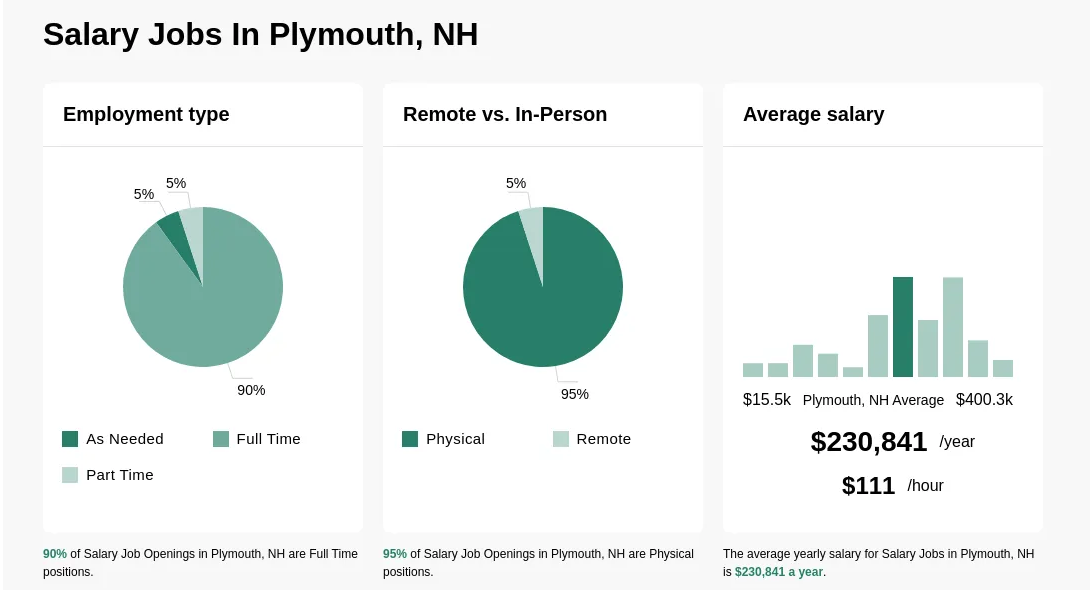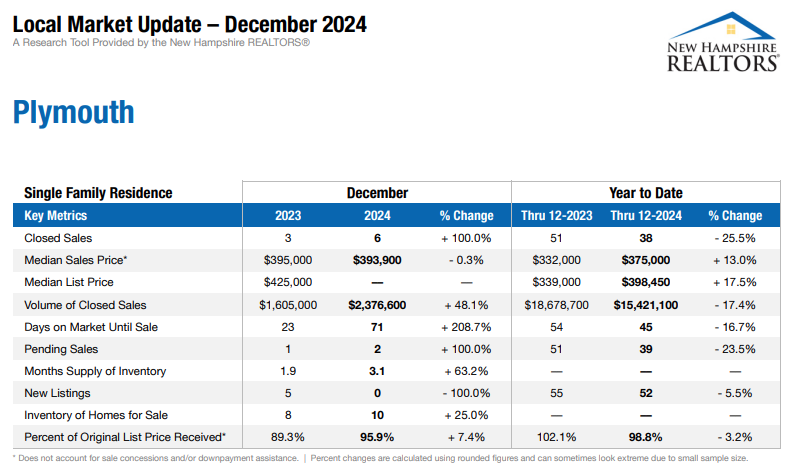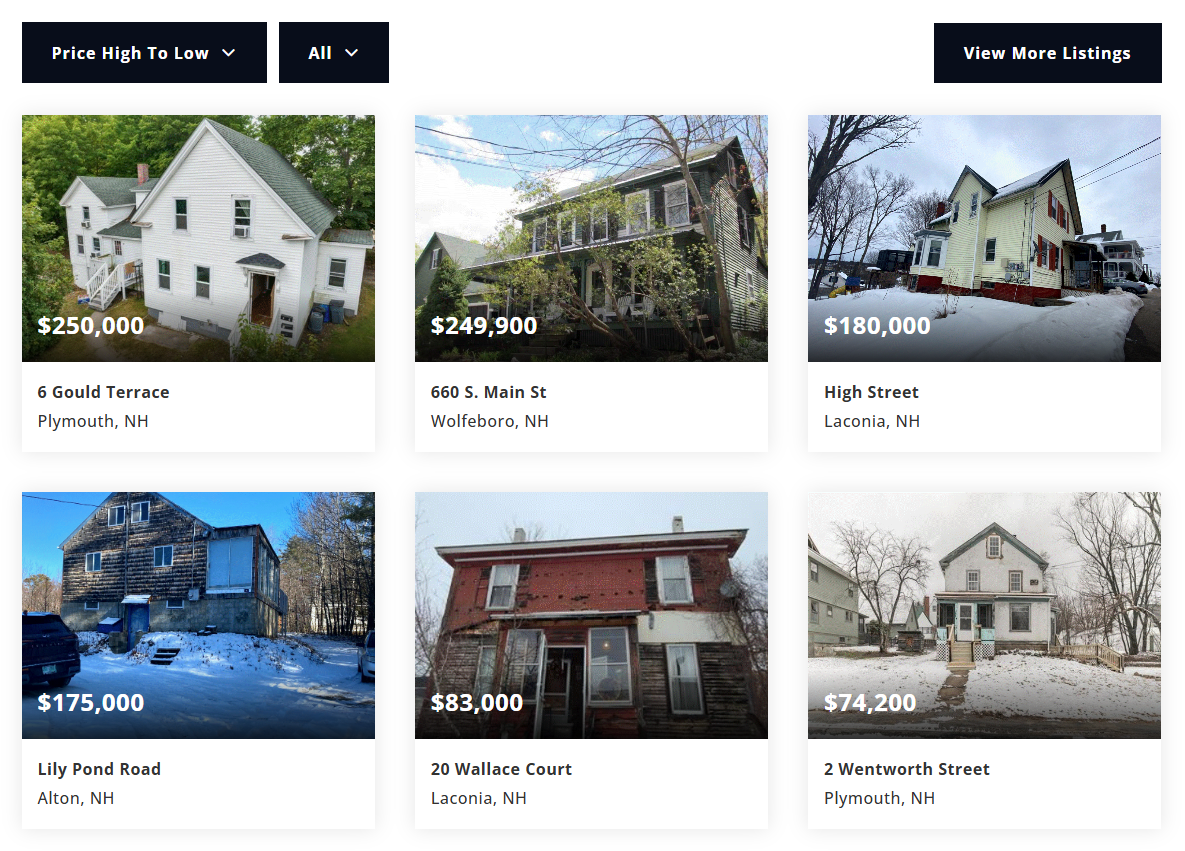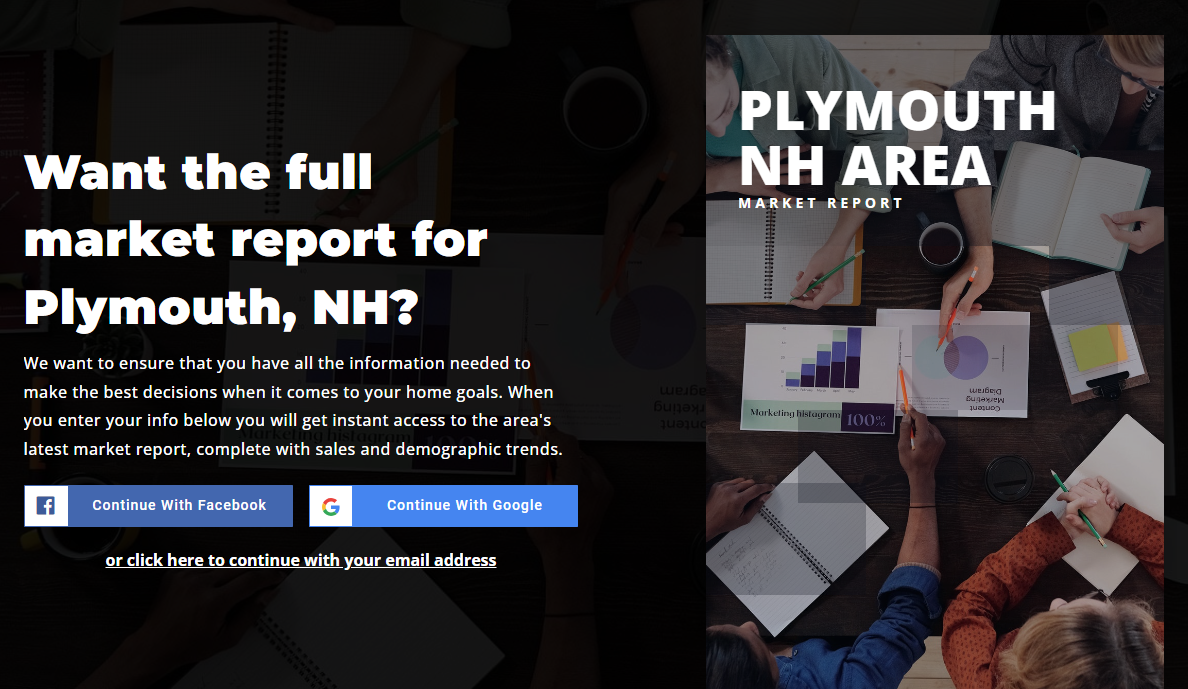Plymouth, New Hampshire, is rapidly becoming one of the most sought-after locations for real estate investment, and for good reason. Nestled in the heart of the White Mountains and the Lakes Region, this charming town offers a unique blend of natural beauty, economic opportunity, and a strong, steady demand for housing. Whether you’re a seasoned investor or new to the market, here’s why Plymouth should be at the top of your investment list.
This area is home to approximately 7,340 residents, with around 58% being homeowners. With an average age of 35, the community is filled with young professionals, new parents, and first-time homeowners. In recent months, about 16 homes have been sold, with an average sale price of $445,696—an increase of $109,423 from the previous period.
Steady Demand for Rental Properties
One of the key reasons Plymouth is a prime real estate investment location is its strong rental demand. Plymouth State University, previously known as Plymouth State College, is a public university with around 4,100 undergraduate and 3,000 graduate students enrolled, investing in properties near the university is a smart move. The steady demand for rental properties from students, faculty, and staff ensures consistent rental income for property owners. This consistent demand helps ensure a reliable income stream, making properties in Plymouth ideal for rental investment. As more people move into the area for work or school, the need for rental properties grows, making it an attractive option for investors looking to expand their portfolios.
Largest Employers, Average Salary, and Population
Plymouth’s economy is anchored by several large employers, which contribute significantly to the town’s financial growth. It is bolstered by several major employers, particularly in education, healthcare, and public services. Here are some of the key contributors to the local economy:
1. Plymouth State University:
With the total average of about 1,000 to 4,999 employee, it is the largest employer in Plymouth. The university provides a wide range of jobs in academia, administration, student services, maintenance, and more. The university is a central hub of employment, offering positions for faculty, staff, and support personnel.
2. Tourism and Hospitality Industry:
Several hotels, inns, restaurants, and recreational facilities in Plymouth and the surrounding areas employ a considerable number of people, particularly in the tourism sector. Seasonal employment opportunities are also abundant in this industry. Employee size ranges from 500 to 999 each of the facilities mentioned.
3. Speare Memorial Hospital:
With the total average of 250 to 499 employee, Speare Memorial Hospital is another major employer in Plymouth, offering jobs in healthcare, including nursing, administration, medical support services, and allied health professions. The hospital plays a crucial role in the local healthcare system and employs a significant number of people in the community.
4. New Hampshire Electric Cooperative (NHEC):
The New Hampshire Electric Cooperative, which has its headquarters in Plymouth, employs individuals in various roles, including customer service, operations, engineering, and administration. The cooperative serves a large portion of the state’s rural areas and is a vital part of the local economy. Employee size average of 100 to 249.
These employers form the backbone of Plymouth’s economy, offering a diverse array of job opportunities that cater to different skill sets and professional backgrounds.
Data Source: nhes.nh
A Growing and Vibrant Community
Plymouth has a dynamic population, with around 7,340 residents, a large portion of whom are young professionals, families, and new homeowners. With an average age of 35, the town is home to a mix of people just starting their careers, raising families, or looking for their first homes. This youthful energy and vibrant community provide a strong foundation for long-term investment success.
Town Demographics In Detail
The average household income in Plymouth is $88,682 with a poverty rate of 9.58%. The median age in Plymouth is 24 years: 23.1 years for males, and 33.8 years for females.

Source: WorldPopulationReview
Average Salary
The salary outlook in Plymouth is notably high, with an average annual salary of $230,841, translating to roughly $111 per hour. While salaries range from $15.5K to $400.3K, the high average suggests that well-paying opportunities exist, likely in specialized or high-demand fields. This makes Plymouth an attractive option for professionals with the right skills and experience. 
Source: ZipRecruiter
Proximity to Major Markets
Plymouth offers the perfect balance of small-town charm and accessibility to larger cities. The town is conveniently located, providing easy access to New Hampshire’s larger metropolitan areas as well as neighboring states like Maine, Vermont, and Massachusetts. This makes Plymouth an attractive location for commuters, businesses, and tourists, all of whom need housing in the area.
Being close to major highways and transport routes also increases Plymouth’s appeal to investors, as the town can attract a wide range of residents and businesses
Overall Market Analysis for Plymouth, NH – December 2024
The Plymouth, NH real estate market in December 2024 reflects mixed trends, showing short-term improvement in sales activity but long-term signs of a slowdown in transaction volume. The market appears to be shifting toward a more balanced state, where both buyers and sellers have negotiation power.


Market Performance & Sales Activity
Short-term (December 2024 vs. December 2023):
- Closed sales doubled (+100%) from 3 to 6, showing a strong finish for the month.
- Sales volume increased by 48.1%, indicating higher-value transactions.
- However, the median sales price saw a minor 0.3% dip, suggesting slight pricing pressure.
Long-term (Year-to-Date 2024 vs. 2023):
- Total closed sales dropped by 25.5% (from 51 to 38), indicating a slower overall market.
- Total volume of closed sales fell by 17.4%, reinforcing the sales decline trend.
- The number of pending sales also decreased (-23.5%), suggesting reduced buyer urgency.
Takeaway: While December showed strength, the year-over-year trend reflects fewer transactions, possibly due to affordability challenges or higher interest rates.
Pricing & Seller Advantage
- The median sales price rose by 13.0% YTD ($332K → $375K), indicating strong home value appreciation despite fewer sales.
- Median list price jumped 17.5% ($339K → $398K), showing seller confidence in home values.
- Sellers in December received 95.9% of their asking price (+7.4%), but YTD numbers indicate a slight drop (-3.2%).
Takeaway:
- Homes are appreciating, but sellers should be cautious about overpricing.
- Pricing correctly is essential to avoid extended time on the market.
Inventory & Market Liquidity
- Inventory levels increased (8 to 10 homes, +25%) and months’ supply grew by 63.2%, suggesting more options for buyers.
- Days on Market (DOM) tripled (+208.7%) from 23 to 71 days, meaning homes are taking much longer to sell.
- New listings were down (from 5 to 0 in December), indicating possible seller hesitation.
Takeaway:
- More available homes and longer selling times indicate a slight shift to a buyer-friendly market.
- If this trend continues, sellers may need to adjust expectations or improve property appeal to attract offers faster.
Future Outlook & Considerations
- Buyers: More inventory and longer DOM suggest better negotiating power, but rising home prices mean waiting too long could lead to higher costs.
- Sellers: Home values are increasing, but demand appears to be cooling—pricing competitively is key.
- Investors: With strong YTD price appreciation but fewer transactions, long-term property value growth remains promising, especially for rentals or flips.
Final Verdict:
- The market is transitioning from a seller’s market to a more balanced market.
- Higher prices and longer selling times suggest affordability challenges are impacting demand.
- Investors and buyers should act strategically, while sellers should price competitively to stay ahead.
Here are the listings of available properties in Plymouth. Click the picture below to show all listings.
Want to see more featured areas in New Hampshire? Click here to explore featured areas.




